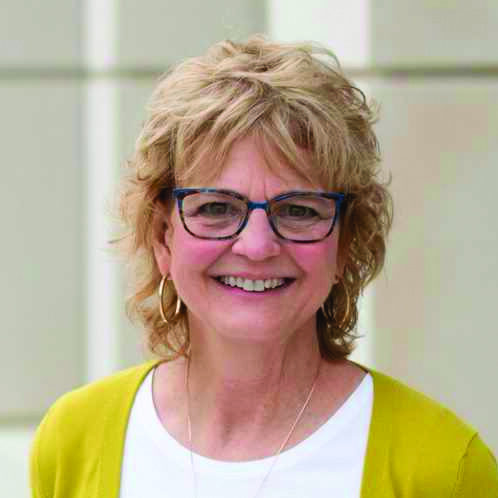Home » Cognitive Rehabilitation Training Program » About » What they say
WHAT THEY SAY

Lance E. Trexler, PhD
Adjunct Clinical Assistant Professor of Physical Medicine & Rehabilitation, Indiana University School of Medicine, ACRM Cognitive Rehabilitation Manual primary author
“We believe that participating in the ACRM Cognitive Rehabilitation Training and using the evidence-based strategies will result in significantly better outcomes for your patients, their families, and your organization.”
Michael R. Fraas, PhD, CCC-SLP, MHL, CBIS
Speech-Language Pathologist, Independence Rehab; Seattle, Washington, USA; Primary Author ACRM Cognitive Rehabilitation Manual & Textbook SECOND EDITION
“It is both a clinical manual and a textbook, we wanted the second manual to be aimed at programs that offer a cognitive rehabilitation course. We have a companion website with a lot of materials that faculty members and students can access to improve the learning process with testing materials, assignments, forms, and worksheets. We are trying to get as many people involved in this as possible.”
“All of the treatments we have in the manual are really effective.”
“… a landmark volume – translates decades of research into clearly described procedures indispensable for working clinicians … an invaluable guide to the evidence-based practice of cognitive rehabilitation for clinicians with or without strong research backgrounds.”


Drew Nagele, PsyD, ABPP, FACRM, CBIST-AP
“Children who have brain injury are not simply ‘little adults.’ In order to be most successful in pediatric cognitive rehabilitation, we must adapt those evidence-based techniques from adult rehab to work with children, and we must learn how to work with children-centric systems like schools and families. The ACRM Pediatric Cognitive Rehabilitation Course teaches us how to do just that.”
Over 1,700
already trained in-person
Over 9,000
copies of the MANUAL have been sold worldwide — to universities, institutions, professionals and patients.
Rebecca D. Eberle, MA, CCC-SLP, BC-ANCDS, FACRM,
Clinical Professor, Indiana University — Bloomington, Indiana, USA; Department of Speech, Language and Hearing Sciences; Primary Author & Managing Editor, ACRM Cognitive Rehabilitation Manual & Textbook SECOND EDITION
“The outcomes of cognitive rehabilitation are to work with individuals who have acquired cognitive impairments to maximize their safety, assist them with functional independence, and very importantly to attain a higher quality of life.”
“The (new edition) is 530 pages . . . a significant enhancement from our first edition. We have 12 new or updated treatment recommendations . . . Secondly, there were areas where we wanted to provide more foundation for the clinicians. To make the biggest impact, we need to get this in the hands of those people when they are first training at the graduate school level for occupational therapists, speech therapists, psychologists, and neuropsychologists, and that will make the difference, that’s how we are going to advance the science.”


William N. Niehaus, MD
University of Colorado School of Medicine, Department of Physical Medicine & Rehabilitation
“Seeing the extensive resources that’s there is great because it really helps people move beyond ‘this is what you should do’ but also ‘here’s additional things to help you out with that process’ and (this) is an amazing job to pull all those pieces together to make it implementable for various levels of experience and learning.”
Lane A. Sidebottom, PT, DHS CPCRT
“This course gives a concise overview of the evidence base supporting cognitive rehabilitation therapy, and incorporates case studies to assist the learner in applying valuable therapeutic techniques to improve cognitive skills and attain functional goals.”
Sid Dickson, PhD, ABPP (Pate Rehabilitation)
“This manual has moved the post-acute brain injury industry significantly forward by providing clear guidelines for delivering best practice cognitive rehabilitation.”
James F. Malec, PhD, ABPP-Cn, Rp
“… a landmark volume – translates decades of research into clearly described procedures indispensable for working clinicians … an invaluable guide to the evidence-based practice of cognitive rehabilitation for clinicians with or without strong research backgrounds.”
Ronald T. Seel, PhD
“Thoughtfully organized, practical, and invaluable — this ACRM / BI-ISIG Cognitive Rehabilitation Manual provides step-by-step techniques for delivering cognitive therapies. This promises to be an essential guide to the delivery of cognitive rehabilitation services for persons with brain injury.”
Ann Benson, MS, CCC-SLP
“This course gave me the evidence-based material I need to address functional cognitive strategies with patients and staff members.”
Aliesha Bell, Student PTA
“We believe that participating in the ACRM Cognitive Rehabilitation Training and using the evidence-based strategies will result in significantly better outcomes for your patients, their families, and your organization.”
“All of the treatments we have in the manual are really effective.”
“… a landmark volume – translates decades of research into clearly described procedures indispensable for working clinicians … an invaluable guide to the evidence-based practice of cognitive rehabilitation for clinicians with or without strong research backgrounds.”
ACRM | 11654 Plaza America Drive, Suite 535 | Reston, VA USA 20190 | TEL: +1.703.435.5335 | FAX: +1.866.692.1619 | EMAIL: [email protected]
Copyright ©2024 ACRM | AMERICAN CONGRESS OF REHABILITATION MEDICINE. All rights reserved.
Advertisements on this site do not constitute a guarantee or endorsement by the journal, association, or publisher of the quality or value of such product or of the claims made for it by its manufacturer.

